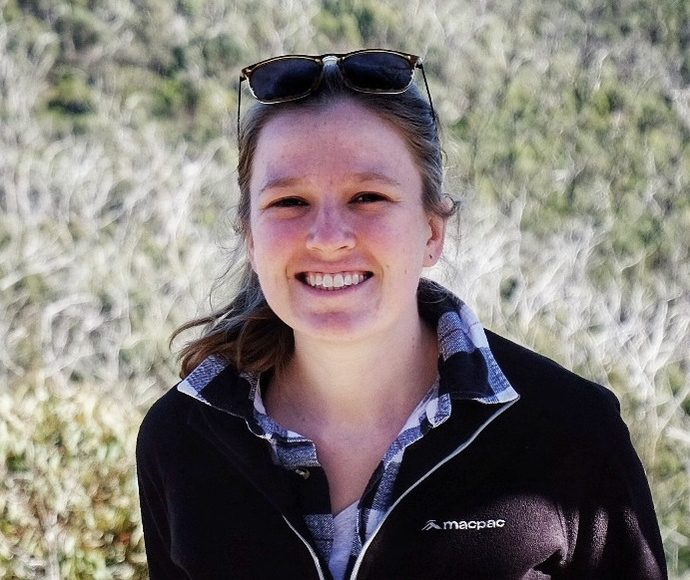Nicky Warton: the environmental scientist sparking research partnerships
Nicky Warton is an environmental scientist who has undertaken research in beach safety education (including studying the reality TV show Bondi Rescue), worked as an environmental consultant and now enjoys facilitating partnerships between internal and external environmental researchers. We caught up with her recently ahead of International Day of Women and Girls in Science to learn more about her job and inspiration.

Tell us about your role
I work in the Science Partnerships team and look after research partnerships with external agencies. This includes managing research grants provided by the Science, Economics and Insights division to support postgraduate and early career researchers at our partner universities I also facilitate work integrated learning placements in the department for undergraduate and postgraduate students.
What does a regular day look like?
Lots of meetings; meeting with people internally, meeting with people externally, organising events, emailing contacts, and essentially facilitating networks of people.
How did you end up working in this area?
I studied a Bachelor of Environmental Science at university. After graduating and completing an extra year of water safety research at uni, I moved into environmental consulting for several years. In this role, I investigated soil and groundwater contamination and remediated (fixed) land.
In doing this, I realised how much I enjoyed working and communicating with people and how great my drive was to contribute to conserving and managing the Australian environment.
I initially applied for another job with the department and was unsuccessful but I was placed in the 'talent pool' for other roles. When they offered me this job, it wasn't something I'd thought about applying for, but I jumped at the chance as it would use a good mix of my skills and interests.
What sparked your interest in science?
Family holidays. I grew up going on lots of fantastic family holidays around Australia. I got to see a lot of the Australian environment. My mum - who was a geographer at heart – would point out fun geographical and environmental facts along the way.
I think that sparked a fascination and passion for the Australian environment. At school I enjoyed geography, so it made sense to study it at university.
I moved into government after seeing how important policy is on influencing environmental management and conservation. I was eager to contribute towards the conservation and management of the Australian environment.
What's your favourite thing about working with the department?
I work and interact with a variety of people – scientists, researchers and students. I enjoy speaking to people across the department, finding out their stories and hearing about their work.
I feel privileged to be able to facilitate internal and external networks between so many scientists and projects, all of which contribute to looking after the environment.
What problem are you trying to solve right now?
One of the big, broad challenges for New South Wales is that we have a huge amount of research that happens in our universities and there's lots of great things that happen in the government department but they're not always well-connected. My focus is getting people and teams from different organisational contexts talking and working together.
Having more brainpower from different organisations working together makes a big difference to conservation and decision-making. This is about harnessing the potential from both university- and government-based research to achieve more targeted, impactful policy outcomes.
What has been most helpful in your career to date?
Plus, having people that supported me along the way has been extremely valuable. My friends, family and mentors have been there encouraging me towards my goals, aims and ambitions. I've found this support really helpful on those days when I've doubted myself or been pushed outside of my comfort zone. Having people that always backed me has built my confidence.
Is there something you think could be addressed or changed to encourage women and girls in STEM?
In my career so far, pay gaps, unconscious bias, lack of flexibility and failing to value all that women bring to the workplace have been common themes. It's been great to move into government because, in my experience, it's a more equitable environment.
I'd like to see all organisations keeping the foot on the accelerator in terms of having more women in leadership, shifting culture and driving towards achieving goals for equality.
Share a fun fact about you
For my Honours project at university, I studied the reality show Bondi Rescue. I explored the benefits of watching it for beach safety education. I found that people watched the show and actually learnt beach safety messages. This research showed the value of reality television as a tool for educating people and influencing their behaviour at the beach.
Interestingly, while we were filming a video for the project, an Irish tourist approached us asking if we were filming Bondi Rescue. Of course we weren't filming the show but we mentioned my research and he told us that he actually watched the show before travelling to Australia to learn about rip currents. Some useful anecdotal evidence for the research there; so, we decided to interview him as part of the video.
"I've always had this interest in environmental research and exploring how to connect and engage people in science, and so I saw this job as a great opportunity to use and expand my skills".
What are you excited about?
Events and conferences that are coming up where we are out meeting people. Post-COVID it's nice to meet with people from partner organisations in-person and hear about all the research that is happening.
Find out more
- Research paper: Improving tourist beach safety awareness: The benefits of watching Bondi Rescueopens a new window
- Our research partnerships
- Careers at NSW Department of Planning and Environmentopens a new window
- Nicky's LinkedIn profileopens a new window
- UNSW Science – Bondi Rescue significantly improves knowledge about the dangers of the surfopens a new window